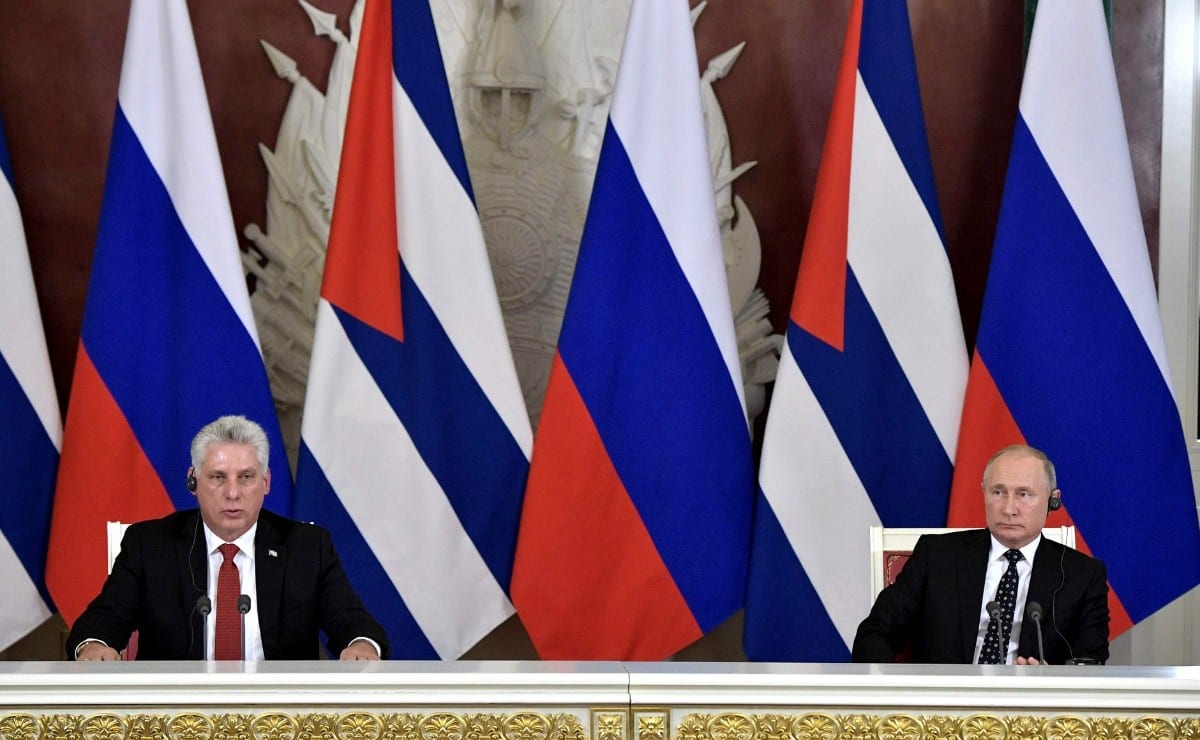 Courtesy: Russian Government
Courtesy: Russian Government
Another Russo-Cuban Honeymoon?
Last Friday, Cuban President Miguel Díaz-Canel visited Moscow for the first time in his presidency. In Russia’s capital, Díaz-Canel and President Vladimir Putin signed numerous agreements to strengthen Russo-Cuban relations. The declaration came after John Bolton announced sanctions against Cuba, Nicaragua, and Venezuela. As a result, Moscow and Havana condemned the US’ policy of unilateral sanctions and highlighted an increase in Russo-Cuban economic relations. As the US continues to limit its foreign policy towards Cuba with the embargo, Russia is seizing an opportunity to foster Cuban dependency.
Above everything, Russia guaranteed Cuba a supply of hydrocarbons to guarantee Cuban energy security knowing Cuba has been affected by reductions in Venezuelan oil shipments. This perhaps undermines one of the most viable opportunities for US-Cuba collaboration, considering the US has the potential to be Cuba’s most competitive energy supplier. As a result of US inaction and Cuba’s historical friendship with Russia, Rosneft signed a deal with Cuba’s petroleum industry to begin surveying the island’s continental platform. However, the agreements do not end with energy affairs.
In terms of defense cooperation, Moscow also expressed a willingness to approve a credit line for the value of 48 million euros for arms purchases. This can be seen as a continuation of the Russo-Cuban 2016 defense deal in which Russia agreed to help Cuba modernize its armed forces. Meanwhile, Russia offered to help Cuba with its infrastructure, namely, Cuba’s national railway. This concrete investment in Cuba’s development is a longtime coming. In August, Moscow, true to form, allocated 642 million rubles to complete the restoration of Cuba’s capital golden dome as a display of Russo-Cuban friendship.
Last Friday represents a concrete Russian investment that goes beyond energy security. Díaz-Canel’s visit to Moscow signals that Russia is likely to entrench itself more into the Cuban economy and its overall development. Given the current state of US-Russia relations, another Russo-Cuban honeymoon should concern and prompt the US to revisit its foreign policy towards both Cuba and Russia. After all, the UN overwhelmingly condemned the US embargo of Cuba last week. More importantly, the US failed to get support from Western nations to vote against the resolution. This puts the US in the position of being an outlier instead of a leader.
Seeing as this was President Putin’s first visit in four years, the US should consider how unilateral sanctions could be pushing Cuba and Russia together. Even from a Cuban perspective, Russia’s investments may prove fruitful in the short term; but it could lead to national dependence on Russia’s support and its unstable economic situation. This is precisely what happened when Cuba depended on Venezuela for energy security. Until Cuba diversifies its economy with multiple partners instead of a single patron, long term stability will be clouded by doubt.
Thus, the US should reflect on the political effects of the embargo on Cuba. Overall, ASP has long argued in favor of rebuilding relations with Cuba and the consequences of inaction regarding it. The embargo and the refusal to engage Cuba is a 58-year-old antiquated piece of foreign policy which has never achieved its objectives, and is incapable of serving contemporary US national security interests. However, any potential repeal of the embargo should be coupled with a comprehensive strategy to move the US-Cuba relationship forward in a more productive manner.





